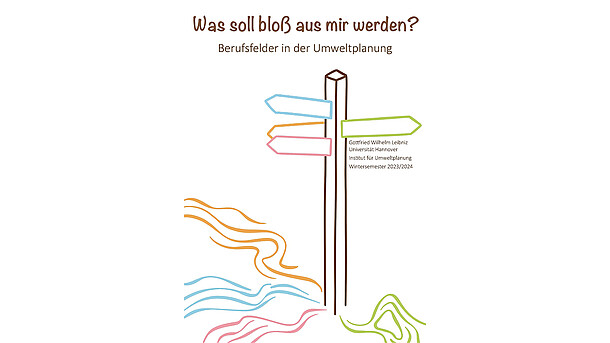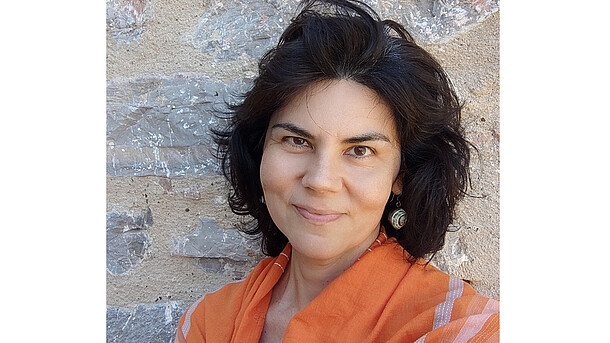A strong interdisciplinary focus
Within the framework of the Intensive Programme (IP), participating students of the different universities work out proposals for a future sustainable development of the Hanover city centre. The reasons behind are new requirements caused by climate change (“climate change proof planning”). This involves working intensively in international as well as multidisciplinary groups, since the participating students are studying spatial planning as a major focus of several study programmes (town and country planning, urban development and architecture, landscape architecture and environmental planning, geography). Additionally they have to take the wide range of aspects into account, which influence large city development.
Examples of relevant aspects with an integrative approach: include the larger geographic and socio-economic context of the city, the legal and administrative context of the planning, aspects of transport and accessibility of the planning area, aspects of energy efficiency and water balance, public participation in planning and communication (growing awareness of the public regarding enviromental impacts as well as adaptation and mitigation measures against climate change).
The theme “spatial planning responses to climate change: renewal of inner cities” addresses several issues, especially: socio-economic matters (purchasing behaviour, demographic change, job offers), environmental facts (urban climate, water, biodiversity, noise, air quality), transport and mobility, energy efficiency.
The IP is formed in such a way that it demands a response in a multidisciplinary approach to spatial planning proposals.
The latter will be supported by professors from different disciplines (town planning, environmental planning, applied geography, urban development), international staff and international students.
Below-average representation
Depending on member state and main focus, spatial planning departments belong to different faculties, usually to engineering faculties, but sometimes to natural or political sciences. On the European level, it is dealt with under the heading architecture and civil engineering. Within this field, architecture generally has higher exchange rates, since possible language barriers are less relevant for design questions than to the political field of practical planning problems.
Spatial, urban and environmental planning highly depend on the understanding of national framework: law, administration, planning culture, nature and landscape. Literature is often only available in the country‘s official language. The IP counteracts this problems by the international composition and permanent presence of a specially trained team of tutors. Most of the professors known each other for a long time and have taken part in ERASMUS STA activities.
Aims
- For students: critical reflection on the role of spatial planning in reducing the effects of climate change as well as adaptation to climate change and the development of innovative adaptation and mitigation approaches for a sustainable and adapted spatial planning. Furthermore, working in international and multidisciplinary student groups to experience best practices in other countries. In addition, learning of communication across linguistic, cultural and disciplinary borders.
- For teachers: development of teaching materials, focusing on development planning strategies and actions to adapt to climate change with a European inter-cultural focus, publication and dissemination of the results.
The subject “spatial planning response to climate change: renewal of inner cities” addresses various professional aspects, especially: socio-economic issues (purchasing behaviour, demographic change, job offers), environmental concerns (urban climate, water, biodiversity, noise, air quality), transport and mobility, energy efficiency. Apart from these issues, there are various cross-sectoral aspects: the inter-cultural communication skills, the cross-border comparison and the exchange of experience. Presentations made by the national groups of each country on spatial planning strategies and actions to adapt to climate change and subsequent student work in international groups using the case study Hanover will serve to approach the subject.
Target groups
- A total of 36 students from the six participating universities (third year bachelor or first year master)
- Teachers from the participating universities
- Urban planners from the state capital Hanover, which are involved to discuss practically the innovative ideas on inner cities development.
Main activities
A practise-oriented teaching and learning in international and interdisciplinary groups.
Preparations: The students will be prepared for the IP at their home universities through critical reflection about the approach and the implementation of climate change policies in inner-city projects. At the beginning of the IP, the national groups have to present the results of this task. Then the international groups will develop innovative proposals for climate proof strategy for the inner-city development of Hanover in 2020. In this, they will apply their knowledge about adequate mitigation and adaptation measures. Moreover, they will benefit from experience in other countries. Initially, there will be a number of lectures and excursions to introduce the students into the natural, socio-economic, administrative and planning context of Hanover, to obtain information and to discuss analysis and assessment methods. Further work will be problem-oriented and for the most part independently (under the supervision of tutors) with strong emphasis on teamwork. Results of the international student groupwork will be presented at the end.
Expected results
- National reports and presentations regarding the urban planning strategies and actions on climate change for the inner cities in the six participating countries.
- Six international master plan drafts for a climate change proof development of Hanover`s city centre.
- A learning platform with selected, international teaching aids, dealing with spatial planning and climate change.
- Publications in professional journals as well as presentations at conferences.
Das IP wurde bezuschusst von dem EU-Programm für Lebenslanges Lernen. Der Herausgeber trägt die alleinige Verantwortung für den Inhalt der Veröffentlichung und die Europäische Kommission haftet nicht für jegliche Weiterverwendung der Information.





